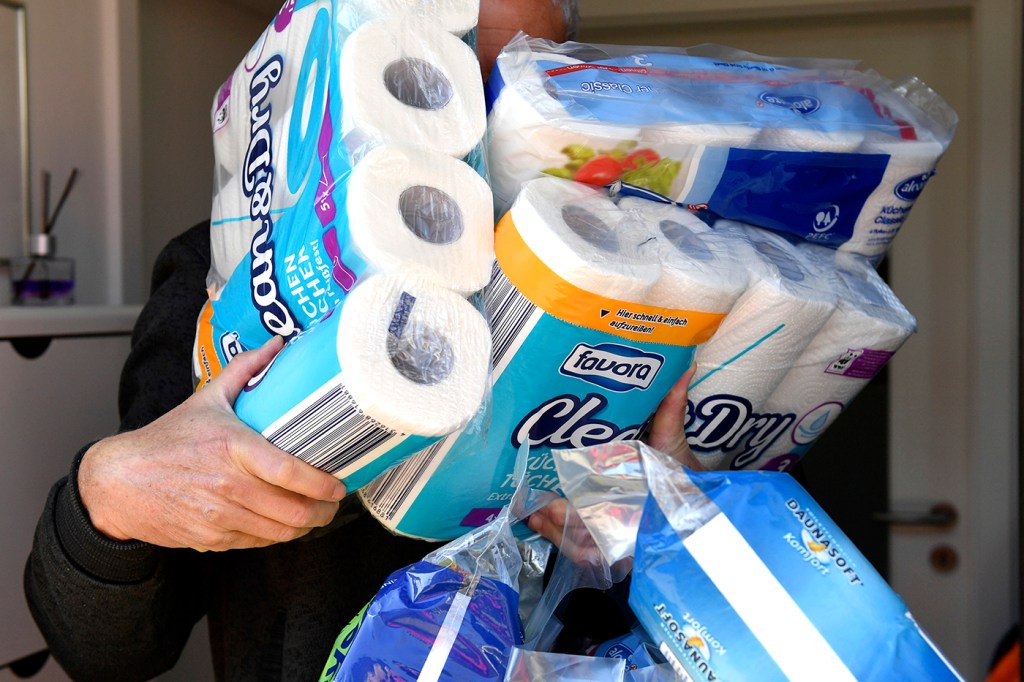Here’s why COVID-19 panic makes you want to stock up on toilet paper

In these uncertain times during the COVID-19 pandemic, there may be something particularly calming about a full kitchen cupboard.
Alexander DePaoli, associate professor of marketing, says it’s not an uncommon sensation.

Alexander DePaoli is an associate professor of marketing in the D’Amore-McKim School of Business. Photo by Ruby Wallau/Northeastern University
“The question of, ‘How do I deal with this uncertain environment—keeping myself and my family safe?’ These are really hard questions,” he says. “But, ‘Do I have enough toilet paper?’ is really easy to answer. Knowing you are fully stocked provides this sense of certainty and sense of control.”
DePaoli researches the ways emotions influence consumer behaviors and satisfaction, and he says that the anxiety from COVID-19 is affecting those behaviors in myriad ways, although it varies from person to person.
DePaoli says that how a person acts depends on how that person identifies the emotion they’re feeling. People who identify it as anxiety tend to want to feel more in control, he says, as the anxiety triggers a level of uncertainty, and an urge to resolve the uncertainty.
“If you are feeling uncertain, you may engage in activities to make you feel more in control of your life,” DePaoli says.
One such activity is shopping: Knowing you are fully stocked on groceries and therefore potentially able to stay inside for a week or two, makes you feel more in control of your circumstances, DePaoli says. You still can’t control the world outside, but you can control what is in your home.
But people who identify their emotion as fear act differently. DePaoli says that when people are afraid, they tend to look for ways to avoid the situation causing that fear.
“If every time you go outside you’re thinking, ‘How do I avoid getting sick?’ that mindset can carry over into consumer decisions,” he says.
People who are in this “avoidance mindset” are more likely to respond to advertising that appeals to the urge to avoid a bad outcome, DePaoli says.
For example, normally restaurant advertisements appeal to people by encouraging them to come to the restaurant for a good time and a welcoming atmosphere. Now, restaurants are appealing to customers with advertisements that encourage people to order food, to help the restaurant avoid closing, a negative outcome.
So, instead of saying buying food will produce a positive outcome, restaurateurs are saying that it will avoid a negative one. The shift takes advantage of the “avoidance mindset,” applying it to consumer choices.
DePaoli says that consumer behavior has changed so quickly and so dramatically that it’s hard to find a precedent.
“We can think of economic shocks—during the recession, people turtled up—but I don’t think in quite so dramatic a fashion,” DePaoli says. “This is a novel experience for people.”
For media inquiries, please contact media@northeastern.edu.





